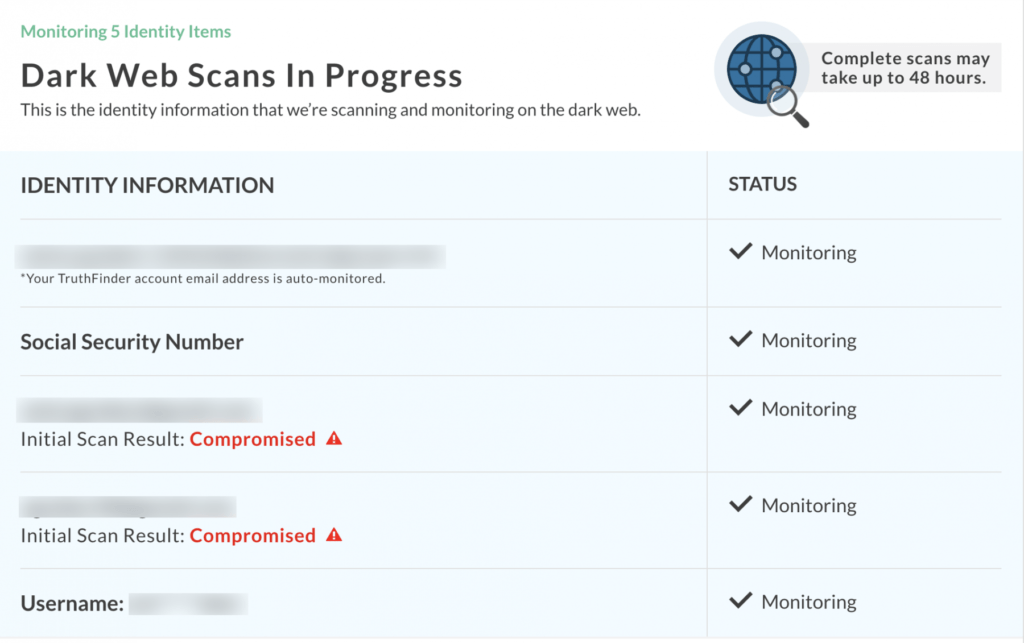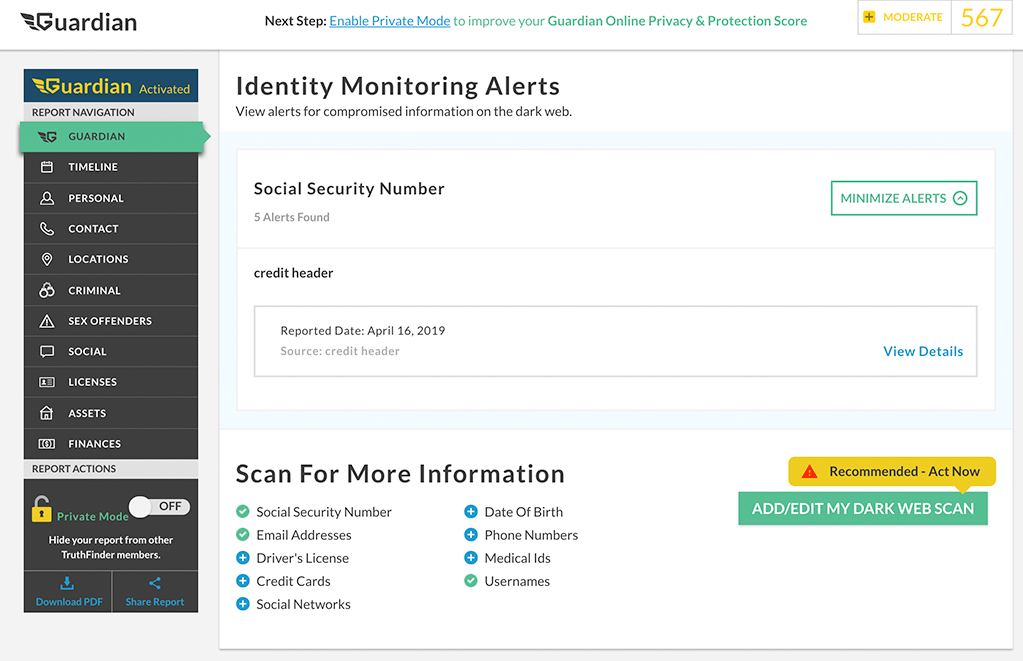暗网(dark web)并没有你想象的那么可怕。本文介绍暗网和深网(deep web)之间的区别,以及如何使用它们。
当你仰望天空时,看到了什么?炽热的太阳,一团云,偶尔有一架飞机。天空好像看起来东西并不多,但是更多的东西是眼睛所看不到的,远远的超越了我们的视野范围。
这就是为什么宇宙是万维网的恰当比喻。两者都在不断扩展和变化——而且完全被误解了。无论人们进行多少探索,都永远无法完全掌握外面的情况。

在探索网络空间的外围之前,先从零开始:互联网的起源。
相关:什么是暗网威胁指数
万维网简史
在互联网出现之前,有 ARPANET,这是 1970 年代美国政府用来共享敏感数据的计算机网络。大约十年后,ARPANET 的有限网络让位于我们称为互联网的单一全球网络。
然而,我们所知道的互联网直到 1991 年才出现。那时,一位英国程序员将万维网作为存储信息的地方,而不仅仅是发送和接收信息。仅使用互联网发送电子邮件或在论坛中发布文章的日子已经一去不复返了。现在用户可以创建和查找几乎所有内容的网页。
随着万维网的普及,用户面临一个新问题:学习导航。随之而来的是谷歌(及其前身),为用户提供了网络搜索的起点。在搜索引擎的帮助下,用户终于可以在不迷路的情况下探索网络空间。
为什么谷歌找不到所有东西
今天最大的搜索引擎比 20 年前要熟练得多,他们可以预测您的搜索,解释多词查询,并为数万亿(是的,我们说数万亿)网页提供服务。
然而,尽管谷歌拥有强大的网络实力,但它和其他搜索引擎对外面的内容的了解非常有限。(一些研究人员说,搜索引擎只显示在线实际可用内容的 1% 左右!)
搜索引擎通过“抓取”网站上的链接来工作。如果网站所有者不希望在其网站上找到某个页面,则该页面不会包含指向该页面的直接链接。如果一个网页没有链接,它就无法在谷歌海量的搜索库中被抓取或索引。该页面不会作为搜索引擎的结果出现。
表面网络
由于搜索引擎会浏览在线可用内容的表面,因此它们在结果页面上显示的网站是所谓的 Surface Web 的一部分。使用 Google 就像用肉眼扫视地平线。当然,有很多东西可以吸收,但你只能看到世界上正在发生的事情的一小部分。

深网
当你发现谷歌之类的搜索引擎无法访问的网页时,那么你正在使用深网。虽然Deep Web听起来很吓人,但不管你信不信,我们每天都在使用它。例如,在 Airbnb 上搜索谋个地方,或在 Expedia 比较飞机航班时,使用的就是 Deep Web。当登录电子邮件账户、在线银行账户或亚马逊账户时,也是在使用 Deep Web。
每当登录帐户或直接在网页上搜索信息时,这些信息都不会出现在搜索引擎上的 Deep Web 内容之中,这是好事。
例如,如果有人用 Google 搜索您的姓名,您当然不会希望自己的银行信息或亚马逊愿望清单出现在结果中。因为这些信息是私密的,所以那些敏感的网页不会被搜索引擎抓取。
使用 Deep Web 就像从飞机上看世界一样。在如此高的海拔上,拥有比地球上的朋友更广阔的有利位置。
如何访问深层网络
这很容,只需转到 TruthFinder,输入某人的姓名,然后按 Enter,显示的结果就是来自 TruthFinder 的 Deep Web 资源数据库。使用 TruthFinder 的 Guardian,可以查明您的任何信息是否在暗网上泄露。

Google 会将您重定向到诸如 TruthFinder 之类的公共记录搜索引擎,但不会向您显示与您正在搜索的姓名相关的特定公共记录。这些记录由 Google 无法在搜索结果中显示的地方、州和联邦数据库保存。要访问该公共记录数据库,必须实际搜索第三方提供商,例如 TruthFinder。
暗网
Dark Web仍然属于 Deep Web 的保护伞;它只是深度网络的一小部分。暗网或“暗网”使用掩码 IP 地址故意隐藏网页,使其不被搜索引擎、网页搜索表单,甚至标准网络浏览器访问。事实上,根据Wired的 Andy Greenberg 的说法,暗网在深网中的占比不到 0.01%。
深网是网络空间的一部分,只有一小部分互联网用户能够访问。如果典型的互联网浏览器可以从地面或飞机上看到,那么 Deep Web 用户可以从太空看到。他们是互联网的宇航员,是互联网世界最广阔的有利位置。
如何访问暗网
暗网网站非常注重匿名性,它们需要特殊的网络浏览器才能访问它们。
美国的大多数黑暗网站都使用 TOR 网络(洋葱路由器的缩写)。TOR 网络是“自愿”计算机网络的集合,它们在提取内容之前将用户的加密流量发送到多个服务器。这样一来,用户的浏览会话就变得如此混乱,他们的身份和位置几乎无法追踪。
黑暗网络的好、坏和彻头彻尾的丑陋
由于 TOR 网络允许用户匿名浏览,它被特工、执法人员、活动家、研究人员、告密者和被禁止访问 Internet 的用户使用。
维基解密是一个臭名昭著的黑暗网站,允许举报人匿名上传机密信息给媒体。虽然泄露机密信息的合法性在美国是一个热门话题,但尚未对维基解密创始人朱利安·阿桑奇提出正式指控。(然而,他确实因 2010 年对两名女性的强奸和性骚扰指控而获得逮捕令。)
甚至 Facebook 也有一个黑暗的网站。去年 10 月,这家社交媒体巨头推出了Tor 隐藏服务,以便用户可以避免监视或审查。
然而,匿名也有阴暗面。TOR 网络还可用于隐藏参与犯罪活动的用户的身份。
以下是您可以在 TOR 网络上找到的非法操作类型:
- 销售未经许可的枪支
- 儿童色情
- 销售恶意软件、盗版软件和黑客指南
- 销售非法药物
- 身份黑客和出售被盗的信用卡信息和用户帐户
- 销售伪造文件和货币
- 雇佣杀手
- 赌博
- 洗钱
- 内幕交易
丝绸之路是黑暗网络上最著名的邪恶活动来源。该网站被称为“毒品亚马逊”,出售高档非法毒品——也就是说,直到它被 FBI 关闭。Evolution、Agora Marketplace 和 Nucleus Marketplace 是受欢迎的黑市网站的另外三个示例。
通过深度网络搜索获得最佳视图
上面已经涵盖了所有网络空间,下面简要回顾一下可以上网的深度:
- Surface Web:显示在搜索引擎结果中的网页。如果可以在 Google 搜索中找到它,它通常是 Surface Web 的一部分。
- 深网:搜索引擎无法访问的所有内容。深层网页包括受登录、网站数据库或没有链接的页面保护的信息。
- 暗网:深网的一个小型匿名利基,故意隐藏在搜索引擎之外。它需要一个特殊的网络浏览器供用户访问。
下次进行 Google 搜索时,您看到的是网络空间中可用内容的非常有限的版本。当然,应该很高兴不能看到这一切。但是,如果想要好好了解外面的情况,那就需要访问 Google 无法显示的数据库。
在TruthFinder 搜索深网,能发现直接从公共记录中提取的几乎任何人(包括您自己)的详细信息,包括财产所有权、社交媒体资料、位置历史,甚至犯罪记录。
还可以使用 TruthFinder 通过 Guardian 的暗网监控来密切关注自己的个人信息。数据泄露在数字时代变得越来越普遍,您的敏感信息将在暗网上卖给出价最高的人。
这意味着您的信用卡信息、医疗 ID 号码,甚至社会安全号码都容易受到攻击——但使用暗网监控,您会立即发现您的数据是否被泄露。然后,可以采取行动保护自己,以免您的身份落入坏人之手。

注册 TruthFinder 很容易。只需在下面输入任何名称即可开始您的第一次搜索。你会发现什么?









